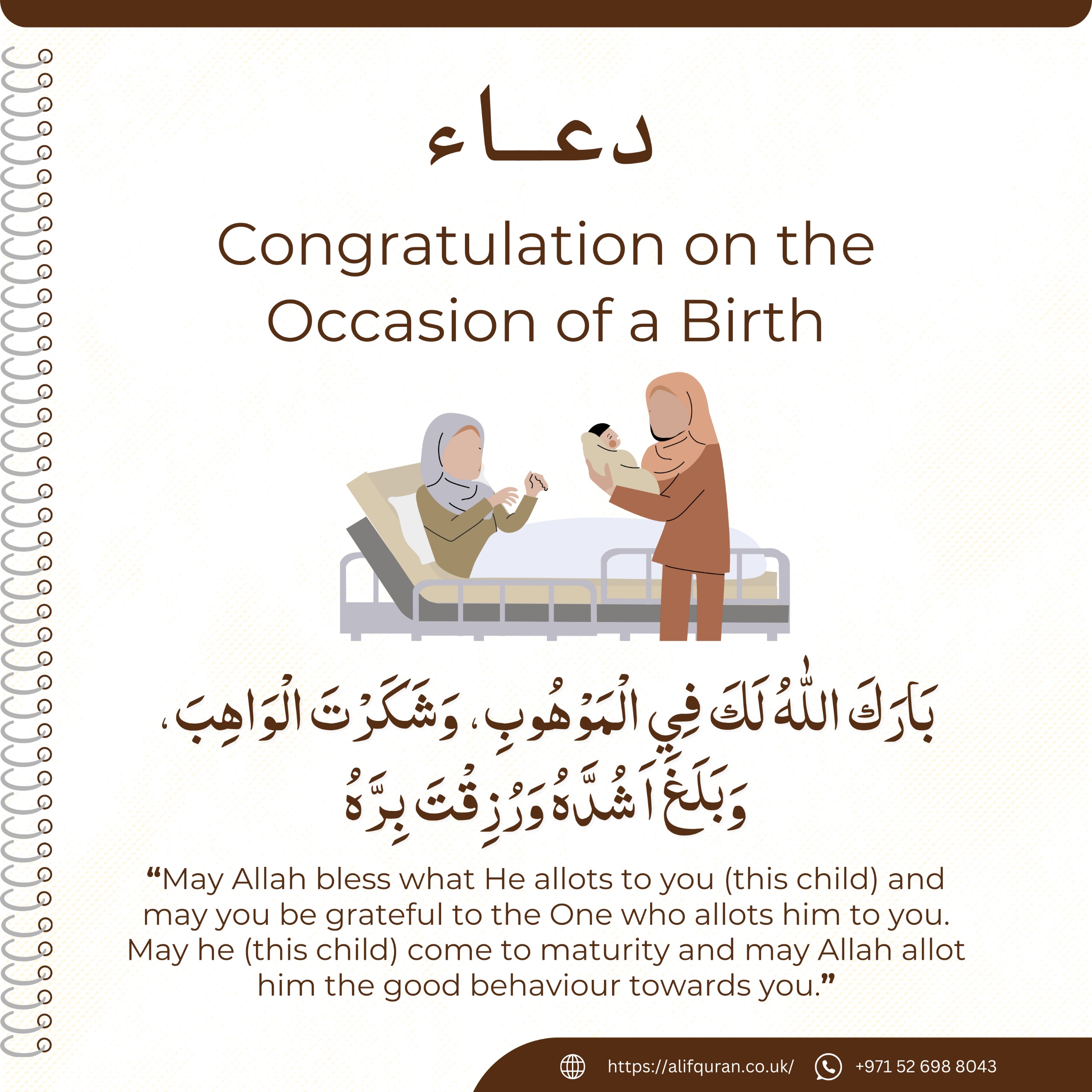Beautiful Islamic Dua for Newborn Baby

The arrival of a baby is one of the most joyful and blessed moments in a family’s life. In Islam, the birth of a child is not only a time of celebration but also a moment of gratitude and reflection. Along with expressing happiness, Muslims are encouraged to make dua (supplication) and invoke Allah’s blessings for the newborn and the parents. One of the most beautiful ways to welcome a child into the world is by reciting the Islamic dua for newborn baby.
In this article, we’ll share the authentic Arabic dua, its English translation, significance, and how you can incorporate it into your family traditions — especially when teaching children the Islamic way of celebrating life’s blessings.
Arabic Dua for Birth Occasion
The following is the commonly recited dua when a baby is born:
بَارَكَ اللّٰهُ لَكَ فِي الْمَوْهُوبِ، وَشَكَرْتَ الْوَاهِبَ، وَبَلَغَ أَشُدَّهُ، وَرُزِقْتَ بِرَّهُ
English Translation of the Dua
“May Allah bless what He allots to you (this child) and may you be grateful to the One who allots him to you. May he (this child) come to maturity and may Allah allot him the good behaviour towards you.”
Meaning & Significance of This Newborn Prayer
This Islamic birth dua is not just a congratulatory message — it is a heartfelt prayer of barakah (blessing), shukr (gratitude), and righteousness for both the parents and the newborn child. It:
Acknowledges Allah as the ultimate Giver of blessings.
Encourages the parents to be thankful to Allah for this beautiful gift.
Prays for the child to reach maturity in good health and iman (faith).
Asks Allah to bless the child with righteousness, so he or she is a source of joy and honour for the parents.
The words are powerful, simple, and full of hope — making them a perfect dua for new baby in Islam.
When to Recite This Dua
Muslims can recite this dua as soon as they hear the news of a baby’s birth. It can be said:
When visiting the newborn and parents at the hospital or home.
When sending congratulations via message, card, or social media.
During the Aqiqah ceremony or naming of the child.
At any time you want to pray for a baby’s well-being.
This dua helps remind both the giver and the receiver of Allah’s mercy and the responsibility of raising a child in an Islamic way.
Welcoming a Baby in Islam – Other Sunnah Practices
Besides the dua for newborn baby, here are some Sunnah acts that are encouraged after the birth of a child:
Adhan (Call to Prayer): It is Sunnah for the father (or a close male relative) to say the Adhan in the baby’s right ear and Iqamah in the left ear.
Tahneek: A small piece of softened date is rubbed on the baby’s palate.
Naming the Child: The child is usually named on the 7th day or earlier.
Aqiqah: A sheep or goat is sacrificed (two for a boy, one for a girl) and the hair is shaved.
Charity (Sadaqah): Giving charity equal to the weight of the shaved hair in silver.
All of these actions carry spiritual significance and help bring blessings into the life of the child and family.
Teach This Dua to Kids and Families
This simple yet profound dua is a beautiful opportunity to:
Teach Islamic etiquette of celebrating new life.
Help children understand gratitude and dua from an early age.
Encourage family bonding through Islamic supplications.
Make welcoming a baby a spiritual experience, not just a cultural one.
At Alif Quran Academy, we encourage children to learn duas like this as part of their Islamic upbringing. Our online Quran classes for kids include daily duas, manners, and character-building, all taught by patient, experienced teachers.
Why This Dua Matters Today
In a time when celebrations are often centered on material gifts, this dua reminds us of the real source of joy: Allah’s blessings. Instead of only saying “congratulations”, Muslims can add a deeper, heartfelt touch by using the words taught by our beloved Prophet Muhammad ﷺ.
Using authentic Islamic duas builds spiritual connection, shows empathy, and keeps the Sunnah alive in our daily lives.
Learn More With Alif Quran Academy
Whether you are a parent, relative, or friend — knowing the right duas and Sunnah practices is a wonderful way to stay connected to Islam.
At Alif Quran Academy, we offer:
Online Quran and Islamic studies classes for kids and adults.
Certified teachers who understand both traditional and modern needs.
Courses that include memorization of daily duas, hadith, and more.
If you want your child to grow up with strong Islamic values, start their journey with us today.
👉 Visit: https://alifquran.co.uk
📞 WhatsApp: +971 52 698 8043
Final Thoughts
The Islamic dua for newborn baby is a powerful prayer full of blessings, wisdom, and love. By reciting this dua, you’re not just offering congratulations — you’re praying for the child’s success in both this world and the Hereafter.
Keep this dua in your heart, share it with others, and revive this beautiful Sunnah in your family and community.
FAQ
How to make children remember the Dua?
Repetition and consistency are key. Reciting the Dua out loud before every meal encourages children to learn it by heart through imitation. Some parents use flashcards near the dining area to remind children.
Why is it important?
Teaching the Dua fosters a spiritual connection with Allah and integrates religious practices into everyday life. It also emphasizes the Sunnah, which is the practice of Prophet Muhammad (PBUH), making children aware of the blessings in their daily activities.
Can my child say the Dua silently?
While it’s beneficial to say the Dua out loud to reinforce the habit, it can also be recited silently. The key is the intention behind it
What are the benefits of this practice?
Among the benefits are increased barakah (blessings) in your meal, the reward of following a Sunnah, and the protection from negative influences like Shayateen (devils) staying away from your food.





